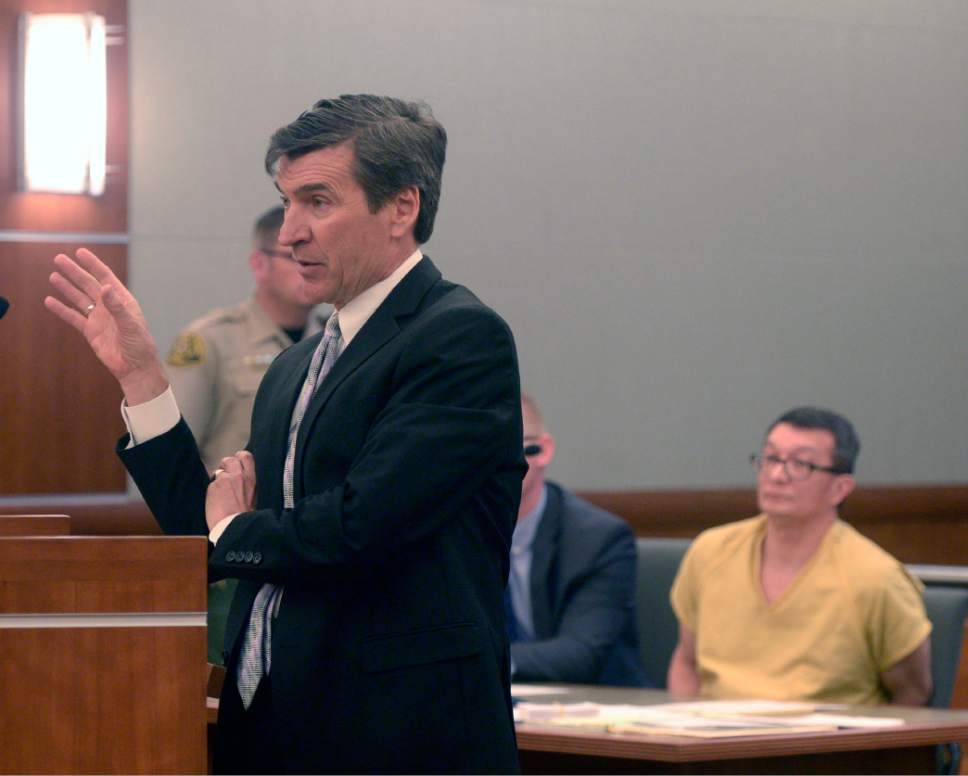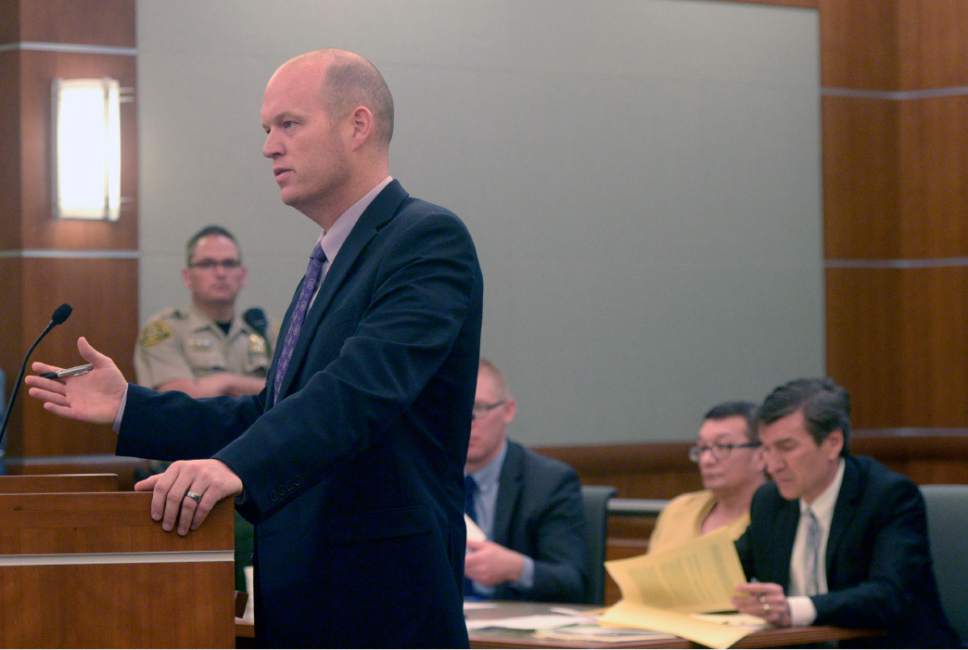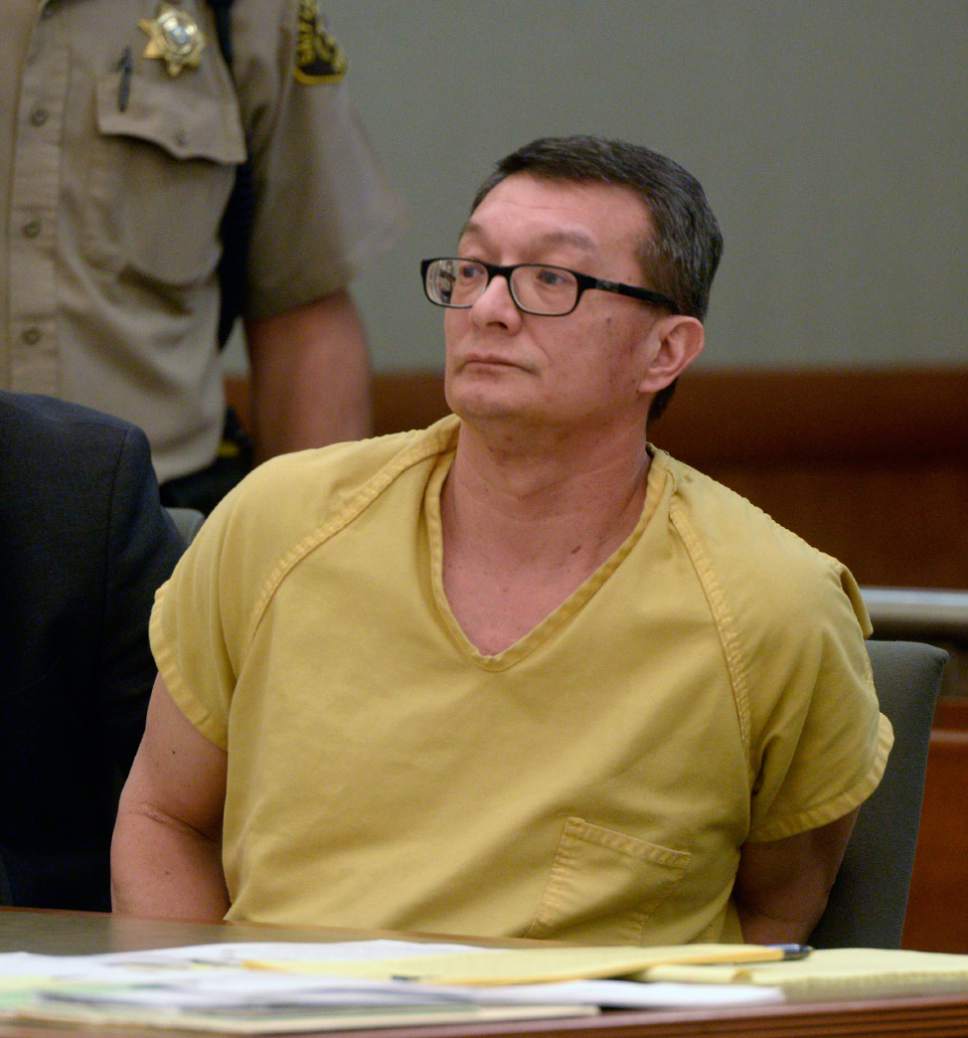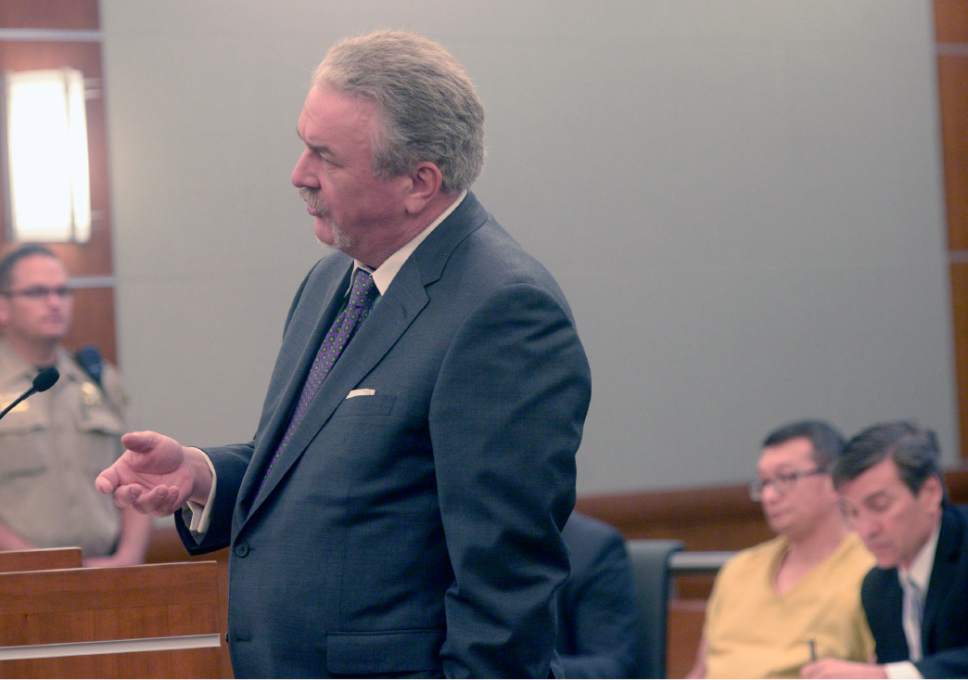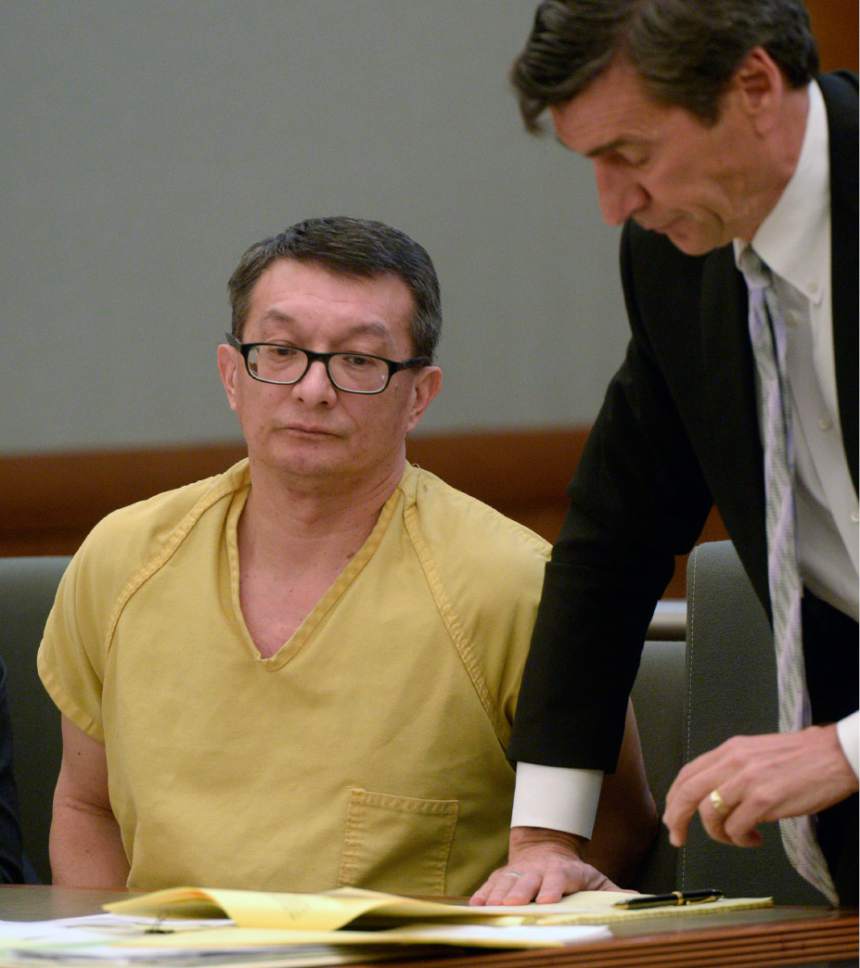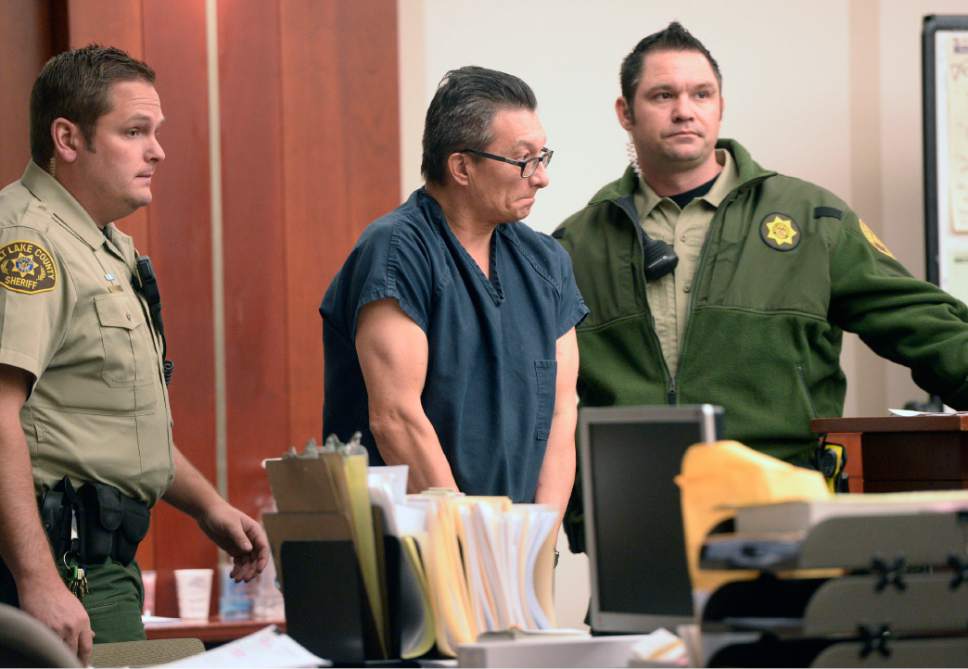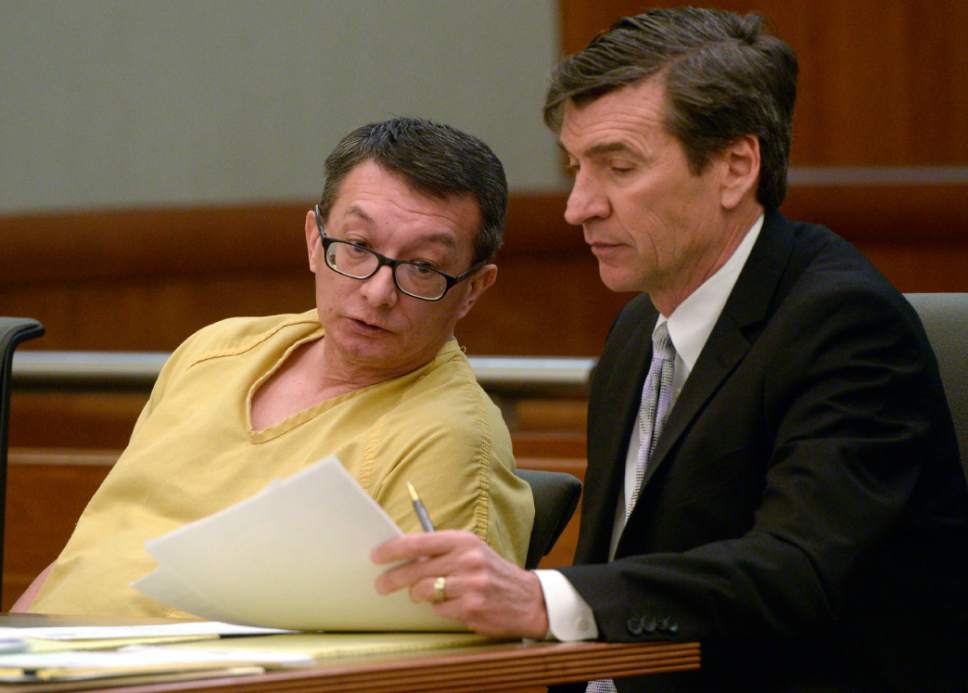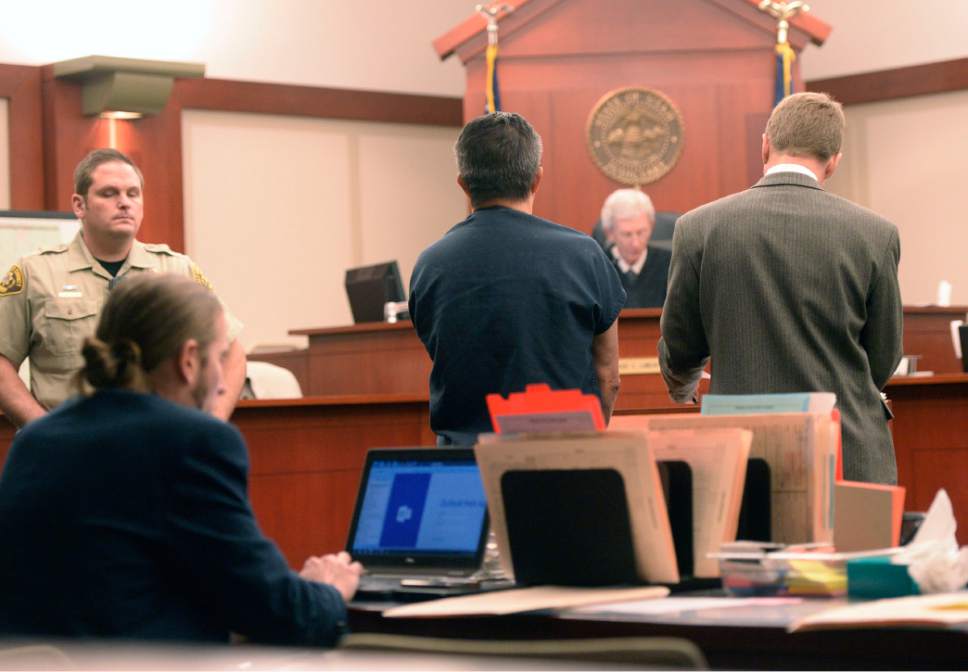This is an archived article that was published on sltrib.com in 2016, and information in the article may be outdated. It is provided only for personal research purposes and may not be reprinted.
West Jordan • A wounded Candice Christina Melo lay in the driveway of a Sandy home for about an hour without medical care, because the officers who responded to her shooting believed she was already dead.
"I did not see any inhalation or expiration," Sandy police officer Mark Ryskamp testified Wednesday during the murder trial of Larry Kent Graff in 3rd District Court. "I got on the air and told [paramedics] they could cancel."
Ryskamp said he checked Melo's arm and neck, but couldn't find a pulse and although her jaw was moving, the 26-year-old woman didn't appear to be breathing.
Melo was presumed dead and her landlord, Graff, was in police custody.
That was about 20 minutes after the Dec. 18, 2014 shooting, according to Ryskamp's testimony and a dispatcher's log
Paramedics were called again six minutes later and were asked for a sheet to cover Melo's body, the logs show.
A third call for medical help was made at 7:43 a.m., after officers saw Melo's head move side to side under the sheet.
At 8:01 a.m., paramedics returned and found Melo had a pulse. She died about eight hours later at Alta View Hospital, Graff attorney, Greg Skordas noted during cross-examination of Rsykamp.
Ryskamp testified that he didn't know when Melo had died, but acknowledged his mistake.
"I was wrong in the fact that she was biologically alive," Ryskamp said, although he insisted that based on his experience and training, Melo was "clinically dead."
Given what he knows now, Ryskamp said, he might have acted differently.
Graff has pleaded not guilty to counts of first-degree felony murder and attempted murder in connection with Melo's death. The attempted murder charge is for firing a Melo's boyfriend Michael Grimsley, the same day.
If convicted by a 3rd District Court jury, Graff, 54, who is called Kent by his family and friends, could spend the rest of his life in prison.
"Kent is guilty," Skordas said during opening statements on Tuesday. "But not of the crime he's charged with."
Skordas contends the case is one of "imperfect self-defense," and given the circumstances surrounding the shooting — that Graff believed he was being robbed — his actions might be considered reasonable.
Under the law, imperfect self-defense applies when a defendant incorrectly, but reasonably, believes their conduct is justifiable. It doesn't excuse a person's conduct, Skordas explained outside the courtroom, but it can reduce a person's level of culpability in a crime.
If the jury of four men and four women hearing Graff's case agrees, they could consider other lesser criminal charges — aggravated assault or manslaughter, for example — when they begin their deliberations.
Graff is expected testify on his own behalf on Thursday.
According to court testimony, the shooting occurred after Melo and Graff's girlfriend, Tennel Jensen, argued over Melo's rent, personal property and expenses she had paid for the household.
Jensen pulled a gun during the fight and yelled for Graff, who appeared with a second weapon, pointing it at Melo and Grimsley and telling them to leave.
Melo grabbed Graff's laptop as she fled and Graff gave chase and fired as many as five shots in her direction, according to the testimony.
Melo was struck three times — in the leg, back and head in the 300 East block of Gary Avenue (9400 South), falling in the driveway.
In an audio recording of an April 2015 hearing that was played for the jury on Tuesday, Grimsley said he also ran from the house and dropped to the ground as Graff turned toward him and fired another shot.
"I don't know how I don't have no holes in me," Grimsley testified.


